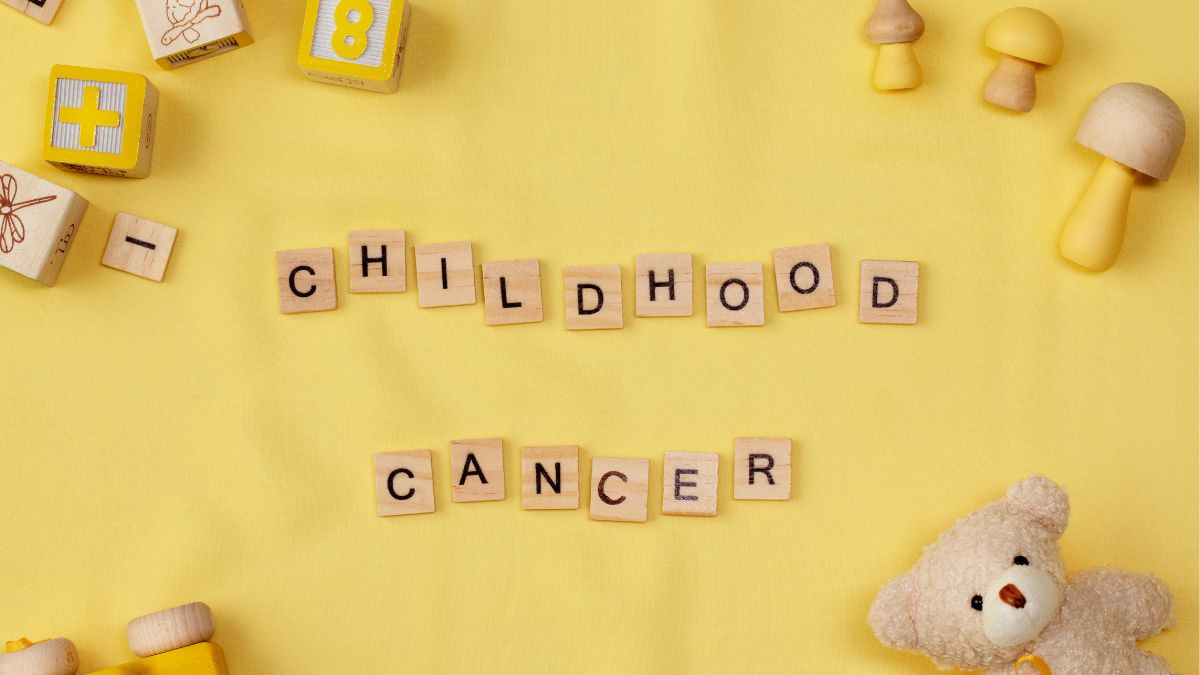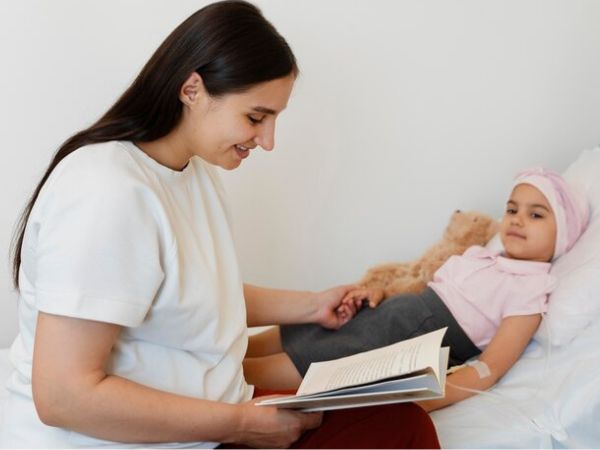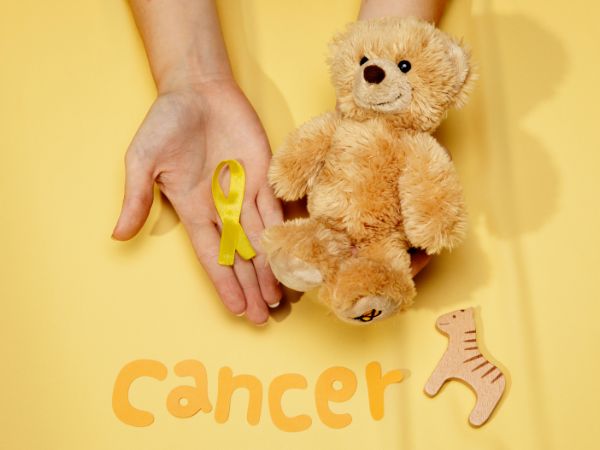Just In
- 14 hrs ago

- 14 hrs ago

- 17 hrs ago

- 18 hrs ago

Don't Miss
- Movies
 Pavi Caretaker Box Office Collection Day 1 Prediction: Dileep's Movie Expected To Open Strongly
Pavi Caretaker Box Office Collection Day 1 Prediction: Dileep's Movie Expected To Open Strongly - Sports
 Who Won Yesterday's IPL Match 41? SRH vs RCB, IPL 2024 on April 25: Royal Challengers Bangalore End Losing Streak
Who Won Yesterday's IPL Match 41? SRH vs RCB, IPL 2024 on April 25: Royal Challengers Bangalore End Losing Streak - Finance
 Bajaj Group Stock Declares Rs. 60/Share Dividend: Buy Ahead of Record Date On 28 June?
Bajaj Group Stock Declares Rs. 60/Share Dividend: Buy Ahead of Record Date On 28 June? - News
 MEA Dismisses US Human Rights Report On Manipur As 'Biased And Misinformed'
MEA Dismisses US Human Rights Report On Manipur As 'Biased And Misinformed' - Automobiles
 Royal Enfield Unveils Revolutionary Rentals & Tours Service: Check Out All Details Here
Royal Enfield Unveils Revolutionary Rentals & Tours Service: Check Out All Details Here - Technology
 Elon Musk’s X Is Launching a TV App Similar to YouTube for Watching Videos
Elon Musk’s X Is Launching a TV App Similar to YouTube for Watching Videos - Education
 AICTE introduces career portal for 3 million students, offering fully-sponsored trip to Silicon Valley
AICTE introduces career portal for 3 million students, offering fully-sponsored trip to Silicon Valley - Travel
 Escape to Kalimpong, Gangtok, and Darjeeling with IRCTC's Tour Package; Check Itinerary
Escape to Kalimpong, Gangtok, and Darjeeling with IRCTC's Tour Package; Check Itinerary
World Cancer Day: Types Of Common Cancer Reported In Indian Children; Can It Be Prevented?
World Cancer Day is observed every year on 4 February. It is a global uniting initiative led by the Union for International Cancer Control (UICC). The theme for World Cancer Day 2023 is Close The Care Gap.
The theme for World Cancer Day 2022-2024 is Close the Care Gap. World Cancer Day was established on 4 February 2000 at the World Cancer Summit Against Cancer for the New Millenium [1].

A group of more than 100 different diseases, cancer is one of the most severe health conditions. Cancer begins when the genetic changes interfere with the orderly process of cell division in your body and cause the cells to grow uncontrollably and develops a mass called a tumour.
The number of people living beyond a cancer diagnosis reached nearly 14.5 million in 2014 and it is expected to rise to almost 19 million by 2024 [2]. Cancer is such a disease that has led to many deaths worldwide, and the number of new cancer cases will rise to 22 million within the next two decades.
Childhood Cancer: What Parents Should Know
According to statistics, approximately 300,000 children are diagnosed with cancer every year. And out of these, 80 per cent live in low- middle-income countries (LMIC) and have as little as 10-30 per cent chance of cure, compared to 80 per cent or more in high-income countries [3].
What Is Childhood Cancer Or Paediatric Cancer?
Childhood cancer or paediatric cancer is rare but not uncommon. In most cases, there is no explanation as to why kids develop cancer [4]. Most cases of childhood cancer develop due to random mutations in the genes of growing cells, and as these changes are rapid and random in nature, there is no effective way to prevent them.
Childhood Cancer Or Paediatric Cancer In India
Approximately 50,000 new cases of childhood cancer occur in India every year. Children are more likely to develop cancer than adults.
Childhood cancers occur in a variety of forms and are quite different from adult cancers. Adult cancers mostly affect organs, whereas childhood cancers affect tissues (hematopoietic, lymphatic, central nervous system, muscle and bone).
Here are some of the most common childhood cancers reported in Indian children:
Leukaemia, brain tumours, lymphomas, and solid tumours such as neuroblastomas and Wilms tumours are the most common types of childhood cancers.

1. Leukaemia
As the most common type of childhood cancer, leukaemia, which are cancers of the bone marrow and blood, account for approximately 28% of all childhood cancers. Children are most commonly affected by acute myeloid leukaemia (AML) and acute lymphocytic leukaemia (ALL).
A number of symptoms may be associated with these leukemias, including bone and joint pain, fatigue, weakness, pale skin, bleeding or bruising, fever, weight loss, and others [5].
Can leukaemia be prevented in children?
In most cases of paediatric leukaemia, there are no known risk factors; therefore, there is no sure way to prevent the development of these cancers.
2. Brain cancer
Brain tumours are the second most common type of cancer in children, making up approximately 26% of childhood cancers. There are many types of brain tumours, and each has a different treatment and outlook [6].
Children with brain tumours are more likely to have tumours in the lower areas of the brain, such as the cerebellum or brain stem. These tumours may cause headaches, nausea, vomiting, blurred or double vision, dizziness, seizures, difficulty walking or handling objects, and other symptoms.
Can brain cancer be prevented in children?
Aside from radiation exposure, there are no lifestyle-related or environmental risk factors for brain and spinal cord tumours in children, so at this point there is no way to prevent most of these diseases.
3. Lymphomas
These cancers usually begin in lymph nodes or other lymph tissues, including tonsils and the thymus. They can also affect the bone marrow and other organs [7]. Lymphomas are formed by immune cells called lymphocytes. Weight loss, fever, sweats, tiredness (fatigue), and lumps (swollen lymph nodes) under the skin in the neck, armpit, or groin may be symptoms associated with cancer, based on the location of its beginning.
Hodgkin lymphoma (also known as Hodgkin disease) and non-Hodgkin lymphoma are the two main types of lymphoma.
Can lymphomas be prevented in children?
There is no way to prevent non-Hodgkin lymphoma (NHL) in children (and adults) at this time due to the absence of risk factors that can be changed. Currently, the best way to reduce NHL risk is to avoid known risk factors, including weakened immune systems.
4. Neuroblastoma
About 6% of all childhood cancers are neuroblastomas, which develop in infants and young children. Neuroblastomas develop as early as possible in the embryo or foetus. This type of cancer is rare in children over age 10. It can start anywhere, but it usually begins in the abdominal region, where it is seen as swelling, along with bone pain and fever [8].
Can neuroblastoma be prevented in children?
There are certain lifestyle changes that can reduce the risk of many adult cancers (such as maintaining a healthy weight or quitting smoking), however, there are no known ways to prevent most childhood cancers at this time. There is only one known risk factor (age and hereditary) for neuroblastoma that can be altered.

5. Wilms' tumour
Children around 3 and 4 years old are most likely to develop Wilms' tumours (also known as nephroblastoma), which begin in either one or both kidneys. It is uncommon in older children and adults. Sometimes it appears as a swelling or lump in the belly (abdomen). Other symptoms include fever, pain, nausea, or a poor appetite.
About 5% of childhood cancers are caused by Wilms' tumours [9].
Can Wilms' tumour be prevented in children?
It is not possible to prevent Wilms' tumour, but if your child has certain risk factors for Wilms' tumour (such as known associated syndromes), the doctor may recommend periodic kidney ultrasounds in order to detect any abnormalities in the kidneys.
On A Final Note...
In spite of the fact that lifestyle changes can reduce the risk of many adult cancers, there is no known method of preventing most childhood cancers at this time.
-
 healthExclusive: On World Autism Day 2024, Let Us Empower Parents With Positive Strategies For Autism Care
healthExclusive: On World Autism Day 2024, Let Us Empower Parents With Positive Strategies For Autism Care -
 insyncNational Girl Child Day 2024: Wishes, Greetings, Messages, Images, FB And WhatsApp Status
insyncNational Girl Child Day 2024: Wishes, Greetings, Messages, Images, FB And WhatsApp Status -
 pregnancy parentingChristmas 2023: How To Raise Kids Who Are On Santa's Nice And Naughty List This Holiday Season
pregnancy parentingChristmas 2023: How To Raise Kids Who Are On Santa's Nice And Naughty List This Holiday Season -
 pregnancy parentingWhat Are The 4 Must Have Vitamins For Kids With Diabetes?
pregnancy parentingWhat Are The 4 Must Have Vitamins For Kids With Diabetes? -
 pregnancy parentingExpert On Importance Of Screening Newborns For Lung Cancer
pregnancy parentingExpert On Importance Of Screening Newborns For Lung Cancer -
 healthPneumonia Outbreak: Pediatrician Shares Insights On How To Protect Children, Safety Practices and Guidelines
healthPneumonia Outbreak: Pediatrician Shares Insights On How To Protect Children, Safety Practices and Guidelines -
 pregnancy parentingStates On High Alert As China Grapples With Respiratory Infections: Symptoms, Do’s And Don’ts
pregnancy parentingStates On High Alert As China Grapples With Respiratory Infections: Symptoms, Do’s And Don’ts -
 pregnancy parentingIs Your Teen Kid Not Eating Vegetables? 5 Ways To Get Teenagers To Start Enjoyin' Veggies
pregnancy parentingIs Your Teen Kid Not Eating Vegetables? 5 Ways To Get Teenagers To Start Enjoyin' Veggies -
 pregnancy parentingMysterious Pneumonia Outbreak In China: What Are The Long-Term Effects Of Pneumonia In Children?
pregnancy parentingMysterious Pneumonia Outbreak In China: What Are The Long-Term Effects Of Pneumonia In Children? -
 pregnancy parentingAre You The Second Favourite Parent To Your Kid? Signs To Watch Out For
pregnancy parentingAre You The Second Favourite Parent To Your Kid? Signs To Watch Out For -
 healthNot Just Heart And Lungs, Exposing Your Child To Air pollution Can Cause This Fatal Disease Too!
healthNot Just Heart And Lungs, Exposing Your Child To Air pollution Can Cause This Fatal Disease Too! -
 pregnancy parentingChildren's Day 2023: Best Gifts Ideas For Children, Kids That Will Help Them Grow Beautifully
pregnancy parentingChildren's Day 2023: Best Gifts Ideas For Children, Kids That Will Help Them Grow Beautifully


 Click it and Unblock the Notifications
Click it and Unblock the Notifications



